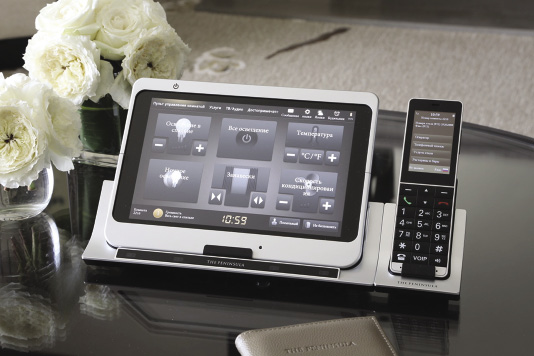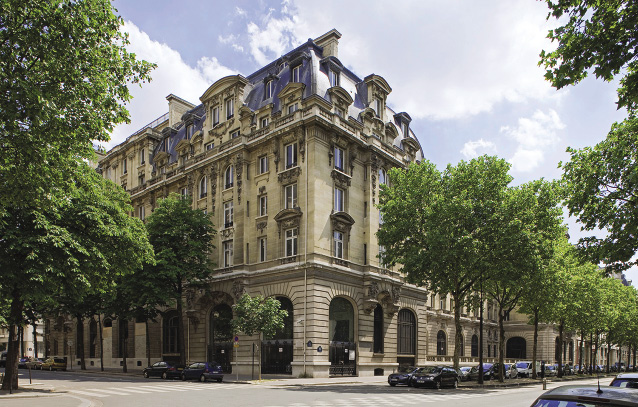


![]()
ONLINE

The Peninsula Inspiration
Editors’ Note
Peter Borer joined The Peninsula Hotels in 1981 as Food and Beverage Manager of The Peninsula Manila. Since that time, he has held various executive and managerial positions within the company in Hong Kong and Bangkok, including General Manager of the flagship The Peninsula Hong Kong, Regional General Manager of Asian properties, and Group General Manager for Asia. He is a graduate of the Lausanne Hotel School (Switzerland).
Company Brief
Incorporated in 1866 and listed on The Stock Exchange of Hong Kong, The Hongkong and Shanghai Hotels, Limited (www.hshgroup.com; HSH) is the holding company of a Group which is engaged in the ownership, development, and management of prestigious hotel, commercial, and residential properties in key locations in Asia, the United States, and Europe, as well as the provision of transport, club management, and other services. The hotel portfolio of the Group comprises The Peninsula Hotels in Hong Kong, Shanghai, Beijing, New York, Chicago, Beverly Hills, Tokyo, Bangkok, Manila, with Paris and London in development. The property portfolio of the Group includes The Repulse Bay Complex, The Peak Tower and The Peak Tramways, St. John’s Building, The Landmark in Ho Chi Minh City, Vietnam, and the Thai Country Club in Bangkok, Thailand.
What makes the Peninsula brand so special?
It’s our ownership structure, which comes from the Kadoorie family, and particularly our Chairman, Sir Michael Kadoorie, who is one of the most committed hotel owners you could wish for. He is involved exactly at the right level; he always pushes us to go to new frontiers in terms of quality and innovation; and he is interested in staff welfare. So we have a very strong culture within this company that creates a dimension where you work for this person – not just for the board of directors.
He speaks to the staff from his heart, and he means what he says. Whenever we have a staff reception in the morning, when he walks in, he gets a very big round of applause from people and you can feel a deep connection.
This motivates me on a daily basis.

Peninsula’s in-room tablet
How do you anticipate the brand will grow?
We play both the management and the owning game, which is a decision that was made many years ago.
So our growth is much slower than maybe some of our competitors, but it allows us to stay in charge of the brand, and to maintain a total commitment to quality.
Right now, we have nine hotels and with our Paris property opening on August 1, 2014, it will be 10. We have announced Yangon in Myanmar, and London, which brings it to a dozen. There will be opportunities for future growth, but it will be at this very controlled pace because every hotel is a very large investment for us and we don’t want to be over-geared. Even with the two new projects, our gearing is still around 11 percent, which is very good.
We also have to control our growth because when you start conceptualizing a new hotel, such as London, the Chairman is very much involved and I’m involved as well, and there is only so much you can do.
How do you tailor new product to the local markets yet retain that consistent Peninsula feel?
It’s very important that each hotel we build has a very strong local flavor.
We’re fortunate that in Paris, we found the building that opened in 1908 as a hotel, so it has a long history as a hotel. It then became a conference center, and now we’re turning it back into a hotel.
When we first walked into this building, you could almost hear the music play. We’re fortunate that the “bones,” the space allocation and public areas, are provisioned because they’re very grand.
Then we’re bringing in Peninsula touches, such as our in-room technology. We have just launched our latest version in Hong Kong – it’s all touchscreen and available in 11 languages. Your room changes to whatever language you need, and not just the tablet but the content – the room service menu, the directory, the concierge’s recommendations, and so on; and all of the switches in the room change to your preferred language.
It’s user-friendly but also means a paperless room so it’s also good for the environment. These are just some of the touches we’re bringing to Paris.
We’ll bring some Peninsula service elements into Paris, like Afternoon Tea and an elaborate Chinese restaurant, because we feel that while we are not experts in French cuisine, after 140 years, we can claim we know Chinese food.
Then you want to have a clear strategy – how you’re going to engage with the local community – so we’re talking about how to connect with the Parisian audience, because we can only be successful if we have the support of the local community.

The Peninsula Paris’ façade
What makes a successful restaurant for a five-star hotel?
In a restaurant, it depends on many factors: primarily, it’s the quality of the food, but it’s also the service and the atmosphere. It also involves what you want the restaurant to be: is it an everyday restaurant where you serve breakfast, lunch, and dinner or is it a specialty venue where you just have dinner?
As you conceptualize a new hotel, you want to have an offering to support your claim to be a five-star hotel, but you don’t want too many restaurants because they are not where you make a lot of profit. You can make money, but it requires careful thought.
When we conceptualize new hotels, we will always have a Peninsula lobby because it’s a part of our DNA and literally the heart of the hotel. A lobby is a good point where you can connect to the local community.
In addition, beverage is more profitable than food, so you want to have good bars.
How far do you go with technology while maintaining the personal touch?
Technology can be wonderful if it is very user-friendly.
We’re now going to make check-in and check-out seamless with very user-friendly technology. This eventually will allow us to no longer have front desks, so you can use that space for more revenue-producing areas or make a lobby much more convivial.
In hiring, is an individual’s personality a key?
Yes. This is a people business, and if you have a character trait that shows that you enjoy serving others and are passionate about what you do, then you have the two principles that I look for. Our business is very simple: it’s about giving people beds, food and drink, and that is all. So you can train 99 percent of our industry, but if that 1 percent of passion and enjoyment of taking care of others isn’t there, it won’t work.•